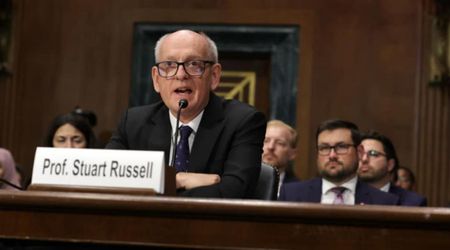SEO Frauds Are Becoming More Sophisticated; Here’s How an Email Almost Scammed a Business

The digital realm's ever-shifting nature has often proven costly for many small companies trying to leverage the internet to do business. Things have only gotten even more complicated with the introduction of digital marketing tools like Search Engine Optimization. SEO, which when done right, catapults your website to the top half of the search engine's ranking which is essential for businesses to drive customers to their website, or in some cases victims!
Yes, many scammers are now relying on SEO in the hopes of increasing their fake website traffic, and to do so they are resorting to some creative methods. In a recent incident, Ernie Smith of the newsletter website Tedium, received a DMCA email, from Commonwealth Legal, claiming that an image on Tedium violated somebody's copyright. However, upon inspection, Smith found that the picture that the email was talking about was downloaded from Unsplash, which is a stock photography website where images are freely usable under the site's license. Smith also noted a few more red flags, including the fact that it came with a "trademark attorney".

In the email, which is addressed to the "owner" of Tedium, the sender writes, "We've observed the display of the image on your site, We need to add a credit to our client immediately. A visible and clickable link to https://tech4gods.com is required, placed either below the image or in the page's footer. This should be addressed in the next five business days." "We're sure you realize the urgency of this request. Kindly understand that simply removing the image does not conclude the matter. Should we not see appropriate action within the given timeframe, we need to activate case No. 86342 and take action as outlined in DMCA Section 512(c)," it reads.

The email was filled with red flags like creating a sense of urgency as well as demanding an action that is not the normal solution to this problem and the fact that it had a typographical error, which is uncommon in professional emails. In this case, the email demanded that a link redirecting to the website be placed instead of simply asking to take it down. However, Smith looked up the address of the law firm which unsurprisingly looked very different from the one they claimed. It quickly became apparent that this was just another attempt to manipulate search engine ranking through creative yet deceptive means. Furthermore, the pictures of the lawyers that were present on the spam website were all AI-generated. Smith also confirmed to Techdirt that Commonwealth’s supposed phone numbers are all out of service.
Smith also spoke to the operator of the website which the email wanted the backlink for and found that the operator had nothing to do with the threat letter. "I have no idea; it certainly has nothing to do with me," he said. Scams like these have been skyrocketing in the US, with the number of cybercrime cases crossing way over 800,000, as per Ipsos. Meanwhile, the FBI reported getting more than 880,418 complaints of cyber-crime reported to the FBI by the public, a 10 percent increase from 2022, as per the Insurance Information Institute.






















